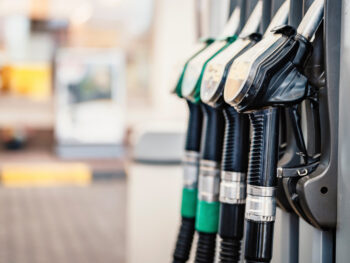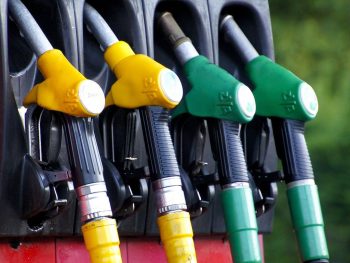Fuel duty hike could impact inflation and hit working people, Chancellor warned
The Chancellor has been urged to maintain the current freeze in fuel duty in the upcoming Budget or risk a “devastating” blow to the economy and working people.

The AA warns of a “devastating impact on the economy and society’s most vulnerable if fuel duty goes up”
The AA said it had overwhelming evidence of a “devastating impact on the economy and society’s most vulnerable if fuel duty goes up in the Budget”.
Chancellor Rachel Reeves is reportedly weighing up plans to reverse the 5p-a-litre cut introduced by former Prime Minister Rishi Sunak in 2022 and possibly realign fuel duty with inflation. This could help the Government plug a multi-billion-pound black hole in public finances.
But the AA has called for the current level of duty to be maintained to protect household budgets, the voluntary care sector, the wider economy and drivers ahead.
Research by the motoring services specialist last month showed that low-income households would be hit hardest by a rise; more than half (55%) say they are worried about the price of fuel in general, while more than two-fifths (45%) cited concerns about a prospective rise in fuel duty.
This concern is backed up by academic research from East Anglia University that shows less well-off households spending as much as 20 to 30% more of their disposable income on petrol.
The AA also warns that a rise could lead to a potential loss of volunteer drivers for health support, community services and charities where fuel allowances don’t even meet current costs.
It’s also cautioned that an increase to fuel duty would be a drain on consumer spending that undermines growth.
HMRC Hydrocarbon Oils Bulletin data shows the UK consumed 46.4 billion litres of petrol and diesel in the last financial year. A 5p increase in fuel duty would switch more than £2.3bn from potential consumer spending to the Treasury – and that’s before adding the additional 1p per litre in VAT that would be added to a 5p fuel duty increase, as the extra fuel duty paid by haulage and other commercial activity would be passed onto customers.
Edmund King, AA president, said: “Scrapping the 5p freeze in fuel duty would hurt everyone, not just drivers. Everything from the price of food in supermarkets to the delivery of social care within our communities are impacted by pump prices, and an unnecessary hike in fuel duty could make things worse.
“As well as being ‘the voice of the motorist’, the AA understands the wider impact any rise in fuel duty has on the wider economy. Household budgets are already stretched and everyone benefits from a temporary suppression in fuel duty. Even households without a car feel the benefit of discounted fuel duty through cheaper bus fares and more affordable goods from supermarkets.”
King also drew attention to existing concerns over profit margins from fuel retailers – stressing that while some outlets collect “higher than necessary” profits, most small and independent forecourts are struggling to keep their heads above water compared to 2017. Instead, King said the best way to ensure fair pump prices would be to complete the initial work of the Competition & Markets Authority (CMA) to legislate that all fuel retailers must publish their prices.
“We don’t deny there are tough choices for the Chancellor to make in October, but hiking fuel duty could backfire on working people and fuel inflation. The recent National Travel Survey shows that outside of London, 70% commute by car to work and this increases to 81% in rural areas. The car remains an essential form of mobility and affordable road transport is essential to the health of the nation,” he stated.
No likely global impact to fuel prices, finds Allstar

Fuel prices are expected to remain steady for the rest of the year and into early 2025
Aside from fuel duty concerns, the outlook for petrol and diesel prices is to remain steady for the remainder of the year, according to Allstar.
Research by the EV, fuel and business expense payment firm has found that prices at the pump have been slowly falling, and market conditions mean they expect to continue to do so for the rest of the year and beyond into early 2025.
Transaction data revealed that petrol prices at the pump were down 7.26p to an average 143.34p with diesel down by 6.1p to 158.5p. Prices are dictated at least in part, by the price of Brent Crude oil, which have fallen materially since a peak following Russia’s invasion of Ukraine. This, coupled with a forecast from the US Energy Information Administration for stability throughout the rest of 2024 as supply and demand balance each other out. This could continue as far as into 2025.
Despite a generally low cost, there are still regional variations in the price of petrol and diesel. Dumfriesshire on the Scottish/English border is often the most expensive, and Antrim in Northern Ireland often the cheapest, potentially as it needs to compete with lower prices across the border in the Republic of Ireland.
The difference between the lowest and highest prices for diesel equates to more than £15 for a 70-litre tank, which shows shopping around is still important to reduce fleet costs.
Paul Holland, managing director for UK/ANZ Fleet at Allstar parent firm Corpay, said: “The prices of both petrol and diesel have been slowly falling and are expected to remain steady for the rest of the year as supply and demand balance each other out, meaning those behind the wheel can breathe a sigh of relief.
“That being said, there is no crystal ball that could have predicted some of the shock geopolitical events the world has seen. Yet, the prices we pay at the forecourt are sensitive to them and will fluctuate again if there is another surprise on the horizon. My best advice is to keep an eye on what is going on globally and offset costs where possible if they do make a surprise hike.”














